"Marcus Fahmy and his pioneering role in the liberation of women" in the late nineteenth century, a symposium at the Faculty of Arts
Under the auspices of Prof. Dr. Mahmoud El-Meteini, President of Ain Shams University, Prof. Dr. Hanan Kamel, Acting Dean of the Faculty of Arts, and supervised by Prof. Dr. Khaled Hussein, Head of the History Department, and coordinated by Dr. Mahmoud Abdullah, Dr. Sherif Imam, the two assistant professors in the department, held the annual seminar, which has been held for nearly seventy years, for the month of October 2022 under the title: “Marcus Fahmy and his role in women’s liberation” in the nineteenth century.
Prof. Dr. Hanan Kamel started her speech by praising the History Department and the rich topics it discusses during the department’s scientific seminar. She stressed that the department has a national wealth of professors, hoping that the attendance generation of faculty, staff and students will represent the future national wealth, and the department is keen to host distinguished professors. In the specialization from different universities to bring about a kind of transfer of ideas and brainstorming, and to circulate research and create a fruitful discussion about it. The Dean of the Faculty also honored: Prof. Dr. Ahmed El-Sherbiny, former Dean of the Faculty of Arts at Cairo University, and Dr. Mustafa Al-Gharib Mohamed, Professor of Modern and Contemporary History at the Faculty of Arts, Benha University, and the former Vice Dean and author of the study, by gifting them the faculty shield.
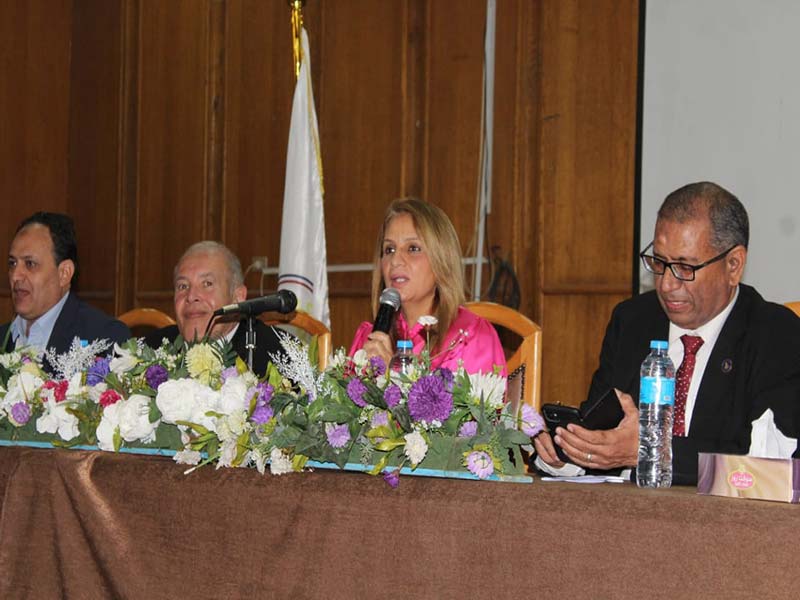 |
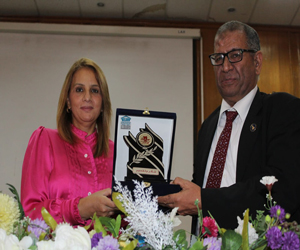 |
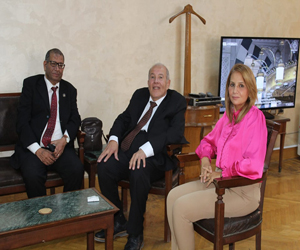 |
||
The meeting was also moderated by Prof. Dr. Mohamed Abdel Wahab, professor of modern and contemporary history, expressed his happiness with this intellectual meeting, and the faculty administration's interest in honoring scholars and distinguished guests.
The symposium emphasized the goal of history, which is to reach the truth through the method of history and arming with its tools, and shed light on the personality of Marcuss Fahmy (1870-1955), an Egyptian patriotic lawyer, who studied in France, participated in the national movement in Egypt during the time of Mustafa Kamel and Saad Zaghloul and he participated in a revolution, defended Egypt’s independence and freedom from British colonialism, and was one of the founders of the Bar Association. He participated in the call for women’s liberation. Qassem Amin preceded this call and published his book “Women in the East” in 1894.
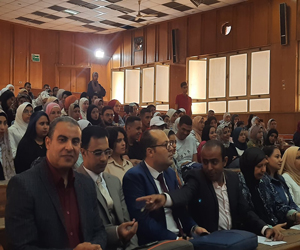 |
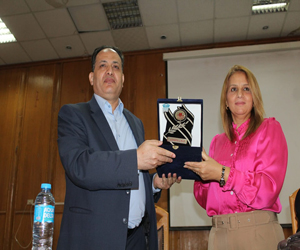 |
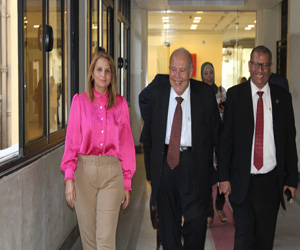 |
||
The study dealt with and documented the primacy of Marcus Fahmy over Qasim Amin with regard to each of them’s demands to emancipate women and reform her conditions in several matters, such as the necessity of paying attention to her education and doing the same as men do in terms of their ability, as well as reviewing his position on hijab and divorce, so Marcus Fahmy’s treatment of the issues of women, under whom she lived for a long time, was undoubtedly a deplorable state for reasons related to a society whose wisdom in this field was the contexts of backwardness and intellectual stagnation as a result of some customs and traditions that were implanted in his culture and strongly controlled his collective mind. It is easy to change those beliefs, so Marcus demanded the liberation of women as one of their rights, considering that this freedom is the basis of the freedom of the whole society. After a well-known figure, as he was 24 years old when he released his book, while Qassem Amin was at the time an advisor to the Court of Appeal, and a member of the Egyptian elite.


.svg)




